Sleep apnea is a serious sleep disorder characterized by repeated interruptions in breathing during sleep. These interruptions, known as apneas, can lead to significant health issues if left untreated. This condition can affect individuals of all ages, including children, and can cause a range of symptoms that impact daily life and overall health.
Sleep Apnea: Understanding and Addressing the Condition
Sleep apnea is a serious sleep disorder characterized by repeated interruptions in breathing during sleep. These interruptions, known as apneas, can lead to significant health issues if left untreated. This condition can affect individuals of all ages, including children, and can cause a range of symptoms that impact daily life and overall health.
Symptoms and Signs
Sleep apnea manifests through various symptoms that can disrupt both sleep and daily functioning. Common signs include:
Loud Snoring: While snoring alone is not indicative of sleep apnea, it often accompanies the disorder.
Daytime Drowsiness: Excessive sleepiness during the day, difficulty staying awake or falling asleep unintentionally.
Chronic Fatigue: Persistent tiredness despite a full night’s sleep.
Morning Headaches: Headaches upon waking, which may be due to the oxygen deprivation during sleep.
Irritability and Mood Changes: Behavioral changes, irritability or mood swings.
Difficulty Concentrating: Problems with focus and memory, often associated with disturbed sleep.
Causes and Risk Factors

Obesity
Excess weight can contribute to airway obstruction.

Age
Individuals between 40 and 60 years old are at higher risk.

Anamtomical Factors
Large tonsils, adenoids or a small jaw can contribute to airway blockage

Lifestyle Choices
Large tonsils, adenoids or a small jaw can contribute to airway blockage

Genetics
A family history of sleep apnea can increase the risk
Diagnosis and Treatment
Diagnosing sleep apnea typically involves a sleep study, which monitors breathing patterns during sleep. If sleep apnea is confirmed, several treatment options are available:

• Oral Appliances: Devices like mandibular advancement devices (MAD) can help keep the airway open. These are especially useful for individuals who cannot tolerate CPAP machines.
• CPAP Therapy: Continuous Positive Airway Pressure (CPAP) devices are commonly used to maintain open airways during sleep.
• Lifestyle Changes: Weight loss, avoiding alcohol and smoking cessation can significantly improve symptoms.
• Surgical Options: In severe cases, surgical interventions may be necessary to correct anatomical obstructions.
$50 AT HOME SLEEP TEST
Ask for details

Impact on Health
Untreated sleep apnea can lead to severe health complications, including cardiovascular issues such as high blood pressure and heart disease, as well as mental health conditions like depression. It is crucial to seek treatment to manage the condition effectively and improve overall quality of life.
If you suspect you have sleep apnea or are experiencing related symptoms, contact Keystone Dental Group at 317-222-4102 for a comprehensive evaluation from our dentist. Dr. Fahad Javed is experienced in treating sleep apnea and will work with you to determine the best course of action for your health and well-being. Our office is here to provide the care and support you need for a better night’s sleep and improved health through sleep apnea treatment in Indianapolis, Indiana.


 317-222-4102
317-222-4102
